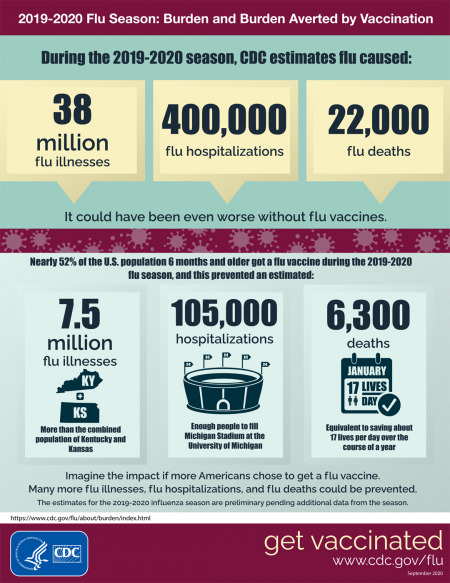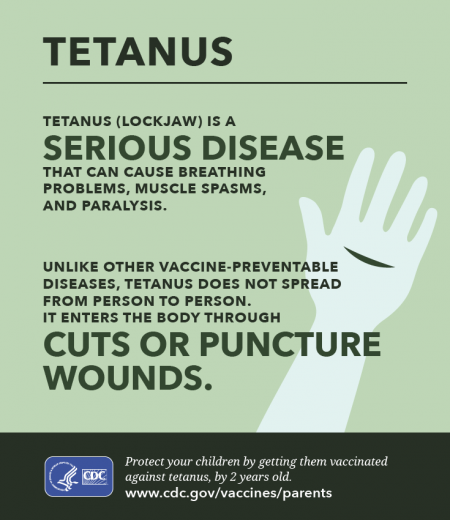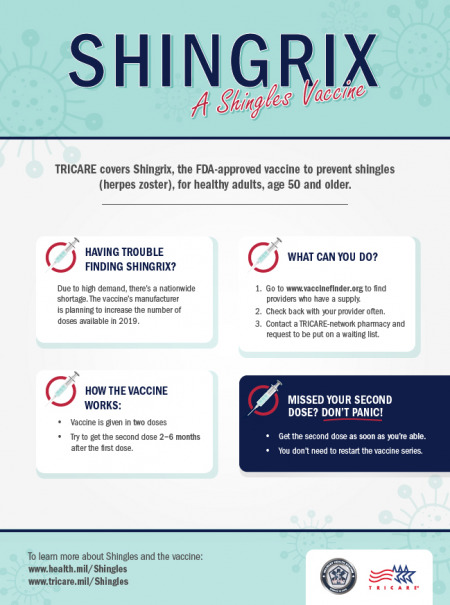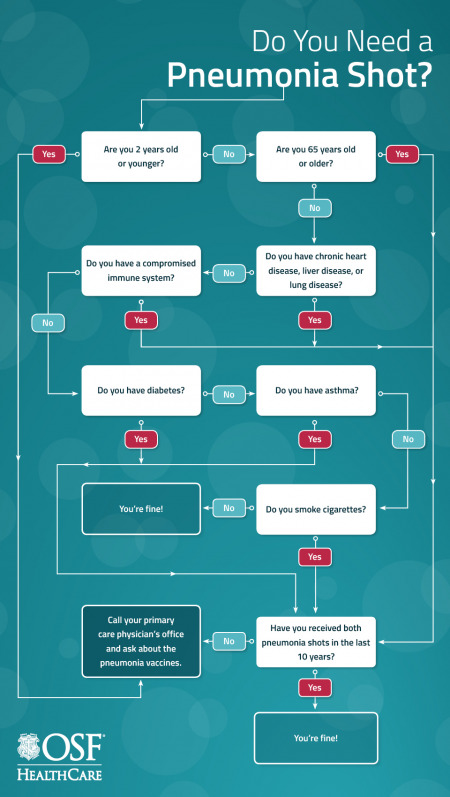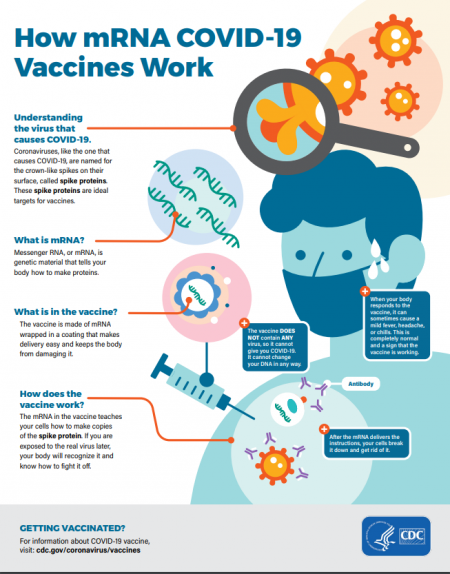Here’s a little secret about me: I suffer from trypanophobia.
That’s a tongue-twisted way to say that I have a paralyzing fear of needles. And, no, I’m not being hyperbolic. I don’t just hate needles like most other people, I’m legit terrified of them, to the point that I’ve never even pierced my ears (despite the occasional pang of envy when a sparkly pair of earrings are dangled in my face).
To me, looking fab isn’t worth that skin-pricking jab.
But when it comes to vaccines, I’m the first in line to tell the syringe-wielding white-coat to “hit me with your best shot” (in my huskiest Pat Benatar voice). And, no, I don’t just mean when I was a kid – back then, I was more likely belting out a blood-curdling scream. I mean that scheduling the right shots is also a part of responsible adulting, and it becomes even more important the older we get.
“Vaccines are not just for kids! Why? The [Centers for Disease Control and Prevention (CDC)] says that vaccines reduce senior debility and death,” explains Jim Dan, M.D., a geriatric clinical advisor for Senior Helpers. “While vaccines do not eliminate every case of disease, they significantly reduce the incidence.”
And if it’s not the needle but the potential side effects that make you nervous, don’t worry, trust the science. According to Dr. Dan, vaccines recommended by the CDC “Each have long-term, proven value of safety and efficacy. There is always risk to every medical intervention, but the risks are very low relative to the benefits.”
Now, I hope I’m preaching to the choir already, especially since the COVID-19 pandemic has claimed more than 5.7 million lives worldwide. But the thing is, we’ve been sucked so far into the COVID black hole that it’s easy to forget the multitude of other threats to our personal and public health. Just because COVID is currently outcompeting other infections, doesn’t mean we shouldn’t immunize ourselves against the rest of them — especially as we’re getting older and becoming more physically vulnerable.
“A good example is pneumonia vaccines,” notes Dr. Dan. “Pneumonia is still a top ten cause of senior death, and there are several pneumonia vaccines that help reduce this mortality.” Then there are viruses like the flu that are endemic to our society, meaning that they’re not going anywhere and we’re constantly susceptible unless we get vaccinated. (And even then, we still might contract the illness, but we’ll be less severely sick if we are immunized.)
So what vaccination schedule should you add to your planner this year? Which immunizations should you aim for, even if (like me) you can’t pronounce them? Don’t worry, you don’t have to take a shot in the dark. According to the CDC, these are the four vaccines — yes, including COVID — that every adult over 50 should prioritize:
Influenza (Flu) Vaccine
Who Should Get It
Everyone aged 6 months and older.
Why You Should Get It
Each year, approximately 5 to 20 percent of the U.S. population contract the flu, with a substantial portion of cases resulting in hospitalizations or deaths. The CDC estimates that during the 2021-2022 flu season, the flu resulted in 20,000 to 41,000 hospitalizations and 1,200 to 3,500 deaths. Adults aged 65 years, and those with underlying conditions like heart disease or asthma, are at the highest risk for developing severe disease or flu-related complications.
How Often You Should Get It
Once per year, preferably in September or October, before flu begins to spread in your community. Even if you can’t get vaccinated until winter, the CDC recommends vaccination because the flu usually peaks in February, with flu season continuing into May.
Who Shouldn’t Get It
The CDC cautions against taking the flu vaccine if you’ve previously had a serious or life-threatening allergy to any ingredient in the vaccine, or if you have a history of Guillain-Barre syndrome (GBS), a severe neurological illness (you’d know it if you had it).
Tdap (Tetanus, diphtheria, pertussis) Vaccine
Who Should Get It
Everyone aged 7 years and older. The Tdap vaccine just became available in 2005, so if you’re an adult who has not received this shot, now is the time to get it.
Why You Should Get It
The Tdap vaccine protects againsts three severe, potentially life-threatening bacterial diseases: tetanus, diphtheria, and pertussis. Diphtheria and pertussis are spread from person to person, while tetanus enters the body through a cut or wound on your skin. The Tdap vaccine is especially important if you have close contact with infants under 1 year old.
How Often You Should Get It
You only need a single dose of Tdap, initially; then, you should get a booster shot every 10 years, or every 5 years in the case of a dirty cut or wound (e.g., animal bite, contamination with dirt, feces, or saliva, puncture wound, burn, frostbite).
Who Shouldn’t Get It
The CDC cautions against taking the Tdap vaccine if you’ve previously had a serious or life-threatening allergy to any ingredient in the vaccine, if you have a history of GBS, or if you’ve experienced epilepsy or other nervous system problems.
Shingles (Herpes zoster) Vaccine
Who Should Get It
Healthy adults aged 50 years and older. The CDC recommends that you get the Shingrix vaccine even if you previously had shingles, are unsure whether you had chickenpox, or received the earlier vaccine Zostavax, which was less effective and is now discontinued in the United States.
Why You Should Get It
Shingles, which typically manifests as a painful, blistering rash, is caused by the same virus as chickenpox (varicella zoster). Even after you recover from chicken pox, the virus stays dormant in your body and can reactivate later in life. About one-third of people in the United States will contract shingles during their lifetime with the risk of long-term complications increasing with age. One of these complications, called postherpetic neuralgia (PHN), occurs in about 10% to 18% of people with shingles. The condition can cause severe pain that persists for months or years.
How Often You Should Get It
The CDC recommends a schedule of two doses, separated by two to six months. Shingrix was only recently approved in 2017, so it is not yet known whether a booster shot will be required as the effectiveness wanes.
Who Shouldn’t Get It
The CDC cautions against taking the shingles vaccine if you’ve previously had a serious or life-threatening allergy to any ingredient in the vaccine, if you currently have shingles, or if you are pregnant or breastfeeding.
Pneumococcal (Pneumonia) Vaccine
Who Should Get It
Healthy adults aged 65 years and older, and adults aged 19 through 64 years with certain medical conditions or other risk factors (e.g., weakened immune system, heart or lung disease, or smoking).
Why You Should Get It
Pneumococcal pneumonia is a serious infection of the lungs that is responsible for more than 250,000 U.S. hospitalizations each year. Approximately 1 in 20 older adults with pneumonia will die from the infection. Even if you’re under 65 years old, you should prioritize this vaccine if you work around elderly or chronically ill people.
How Often You Should Get It
If you’re an adult aged 65 or older, you should receive two separate pneumococcal vaccines, separated by about a year. First, you’ll receive a dose of the pneumococcal conjugate vaccine (PCV13), and then a year later you’ll receive a dose of the pneumococcal polysaccharide vaccine (PPSV23). The vaccination schedule is different if you’re an adult aged 19 to 64 with an underlying medical condition or risk factor. In that case, you’ll receive your doses of PCV13 and PPSV23 eight weeks apart.
Who Shouldn’t Get It
The CDC cautions against taking the shingles vaccine if you’ve previously had a serious or life-threatening allergy to any ingredient in the vaccine.
COVID-19 Vaccine
Who Should Get It
Everyone aged 5 years and older. Both the Pfizer-BioNTech and Moderna vaccines are authorized for people aged 5 and up, while the Johnson & Johnson / Janssen vaccine is authorized for people aged 18 years and older.
Why You Should Get It
SARS-CoV-2, the virus that causes COVID-19, is extremely contagious and has resulted in 5.7 million deaths worldwide. Older adults and people with underlying medical conditions are most at risk for developing severe complications of the COVID-19 illness. The virus can cause long-term health problems even in people who contract milder disease.
How Often You Should Get It
The Johnson & Johnson vaccine requires a single dose, initially, while the Pfizer-BioNTech and Moderna vaccines require 2 separate doses, spaced 21 to 28 days apart. At least 5 months after completing your primary vaccine series, you should receive a booster shot of either the Pfizer-BioNTech or Moderna (the mRNA) vaccine.
Who Shouldn’t Get It
The CDC cautions against taking the COVID-19 vaccine if you’ve previously had a serious or life-threatening allergy to any ingredient in the vaccine. If you had a serious allergic reaction after receiving a dose of the Pfizer-BioNTech or Moderna vaccine, you should not get another dose of an mRNA vaccine.
Hepatitis A Vaccine
Who Should Get It
All children aged 12-23 months, all children and adolescents aged 2-18 years who have not previously received the vaccine, and adults who are at increased risk for a) getting infected with hepatitis A or b) experiencing severe disease if they contract hepatitis A. People at increased risk for hepatitis A include international travelers, men who have sex with men, people who use or inject illegal drugs, people with occupational risk for exposure, people who expect to be in close personal contact with an international adoptee, and people experiencing homelessness. People at increased risk for having severe disease from hepatitis A include those with chronic liver disease (including hepatitis B and C) and those who have HIV.
Why You Should Get It
Hepatitis A, a highly contagious liver infection, spreads through person-to-person contact or contaminated food or water. Though most people who get infected recover completely, in some cases, hepatitis A can cause liver failure. People who are over 50 years old and who have other liver diseases are at an increased risk of having liver failure from hepatitis A.
How Often You Should Get It
The single-dose hepatitis A vaccine is given as two shots, spaced six months apart. A combination vaccine against both hepatitis A and hepatitis B is also available to adults aged 18 and older; this vaccine is given as three shots over a six-month period.
Who Shouldn’t Get It
The CDC cautions against taking the hepatitis A vaccine if you’ve previously had a serious or life-threatening allergy to any ingredient in the vaccine.
Hepatitis B Vaccine
Who Should Get It
All children and adolescents aged 0-18 years, and adults who are at increased risk for getting infected with hepatitis B. People at increased risk for hepatitis B include people whose sex partner has hepatitis B, people who live with someone who has hepatitis B, people who are sexually active with multiple partners, people seeking treatment for a sexually transmitted disease, victims of sexual assault or abuse, men who have sexual contact with other men, people who share drug injection equipment, people living in jail or prison, healthcare and public safety workers at risk for exposure, staff and residents at facilities for developmentally disabled people, travelers to areas with increased prevalence of hepatitis B, and people with chronic liver disease (including hepatitis A or C), kidney disease, HIV, or diabetes.
Why You Should Get It
Hepatitis A, a contagious liver infection, spreads through exposure to blood, semen, or other bodily fluid infected with hepatitis B. Acute hepatitis B is typically mild and resolves in a few weeks, but chronic hepatitis B is a long-term illness that can lead to liver damage like cirrhosis, liver cancer, and death.
How Often You Should Get It
The hepatitis B vaccine is typically given as two to four shots over a six-month period. A combination vaccine against both hepatitis A and hepatitis B is also available to adults aged 18 and older; this vaccine is given as three shots over six months.
Who Shouldn’t Get It
The CDC cautions against taking the hepatitis B vaccine if you have any serious or life-threatening allergies, or if you had a serious allergic reaction after a single dose of the hepatitis B vaccine.

Are you up-to-date on your vaccinations? What are your tips for our readers who are nervous about needles? Share your advice in the comments!
Check These Out For More Tips On Healthy Living:

